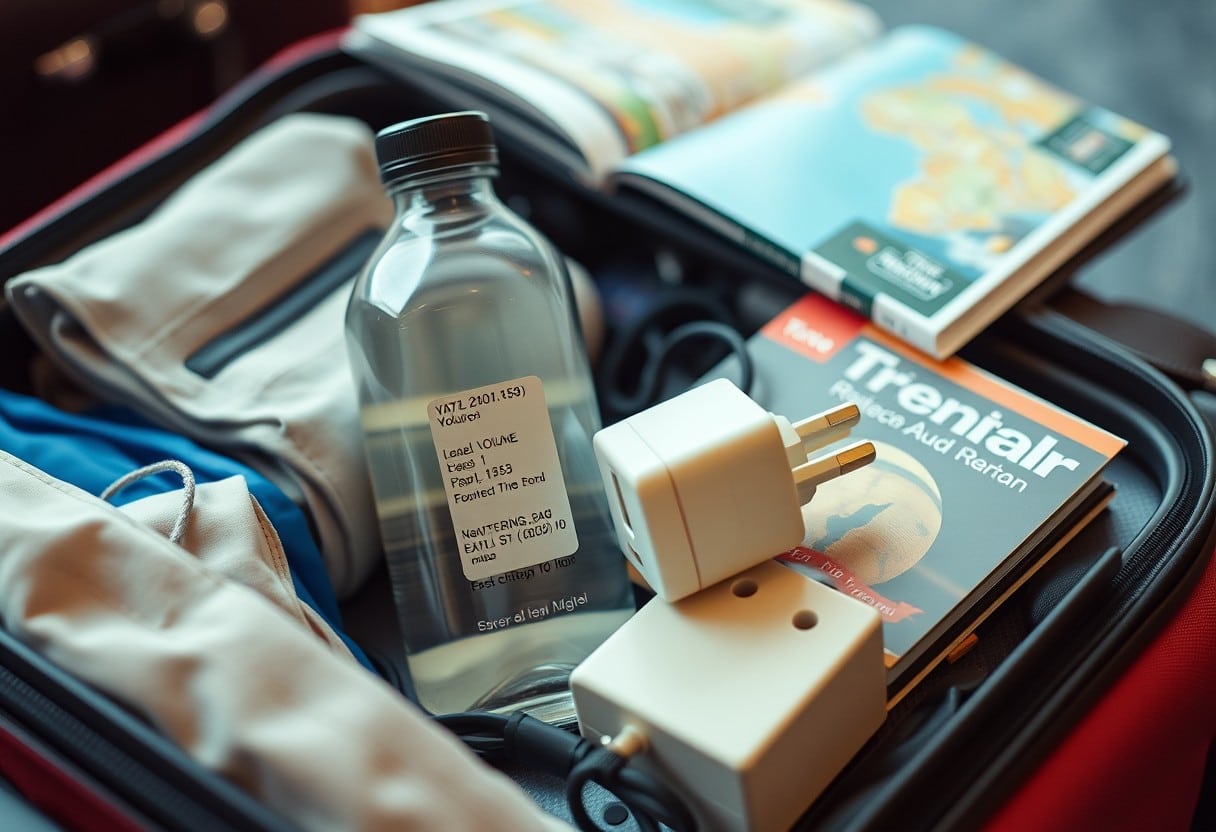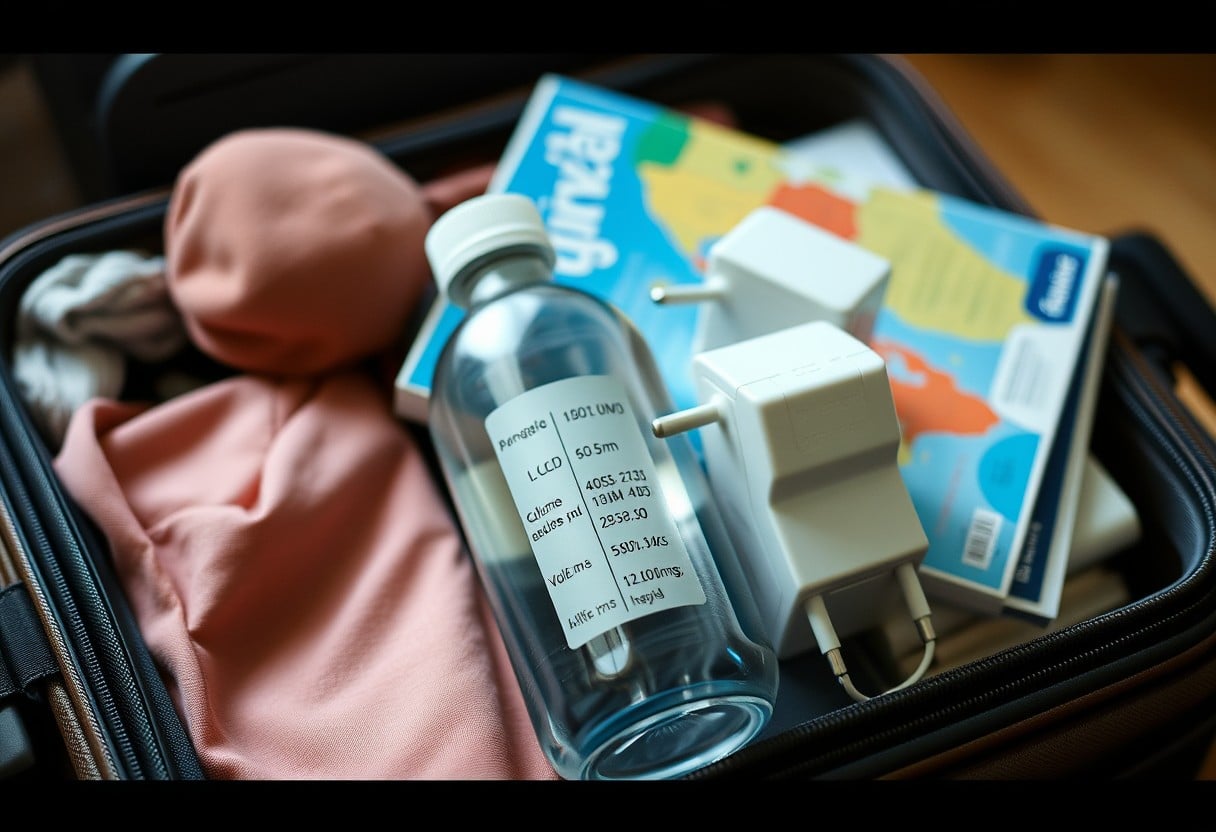introductory
Traveling abroad is a great opportunity to relax and explore a different culture. It's important to make a thorough packing list before you leave, as this will help you avoid missing essentials. Size and weight limits vary between carry-on and checked baggage, and you'll need to be aware of each airline's specific regulations. Additionally, knowing the limits for liquids, such as no more than 100ml per container, can make your security screening process much smoother. Let's get ready for a wonderful journey together!

Traveling Abroad Baggage Checklist Overview
Before traveling abroad, it is essential to prepare a comprehensive packing list to help you ensure that you have all the necessary items to make your trip enjoyable and hassle-free. Plan your luggage according to your destination's climate, expected activities and personal needs. Whether it's hand luggage or checked baggage, it's important to be aware of all the regulations and restrictions to avoid any unexpected hassles.
Carry-on baggage specification
Carry-on baggage is usually subject to the size and weight limits set by the airline, with common limits being a height + width + length of no more than 115 centimeters and a weight usually between 5 and 10 kilograms. According to Taiwan's carry-on regulations, you are allowed to carry personal belongings, documents, necessities and entertainment during the flight, but liquids must be placed in transparent ziplock bags and each container must not exceed 100 milliliters.
Checked Baggage Instruction
Checked baggage size and weight limits vary according to the airline. Usually, the size of baggage should not exceed 158 centimeters and the weight is between 20 and 30 kilograms. You should carry an appropriate amount of clothing, personal care products and medication, and pay attention to the selection of food items, avoiding items that are easily melted or fragile to ensure that your baggage is in good condition during transportation.
When checking in your baggage, you are advised to clearly label the contents of your baggage and understand the specific regulations of each airline, including possible additional charges. It is also advisable to carry medication and necessary first aid supplies, and to ensure that valuable items such as electronic devices are kept in your hand luggage to avoid the risk of damage or loss during check-in.
Carry-on baggage specification
When traveling abroad, hand luggage regulations are very important. Generally, the size limit for hand luggage is 115 centimeters in height, width and length, and the weight limit is between 5 and 10 kilograms. Specific requirements may vary from airline to airline, so it is advisable to check the regulations carefully before you fly.
Carrying List
You can carry a variety of items in your hand luggage, including personal items (such as cell phones, wallets, cameras), travel documents (such as passports), essential items (such as medications and eyeglasses), entertainment items during your flight (such as books and headphones), and legal health care products. Make sure these items are stored in a neat and organized manner to make your trip more convenient.
Liquid and gel restrictions
There are clear restrictions on the carriage of liquids and gels in hand baggage. Each container must not exceed 100 ml and all liquid containers must be placed in a transparent ziplock bag not exceeding 1 liter, one such bag per passenger. It is important to follow these rules to avoid trouble at the security checkpoint.
Restrictions on liquids and gels include all liquids, gels and aerosols, which means that items such as perfumes, cosmetics, etc. should be carried in small bottles of less than 100 ml. In addition, liquids must be placed in a clear plastic bag with a sealing design and removed for inspection when passing through the security checkpoint. The purpose of this requirement is to enhance safety and ensure the smooth conduct of flights.
Checked Baggage Requirements
When traveling abroad, it is important to know the requirements for checked baggage. Baggage size and weight restrictions may vary from airline to airline, so it is recommended that you check the official website of the airline you are traveling with for the most up-to-date regulations before you depart. Also, remember to followLiquid Carrying Requirements on International Flights: What You Need to KnowThe following is a list of prohibited items that may affect your trip.
Baggage Size and Weight Limits
Generally speaking, the size limit of checked baggage is usually height + width + length not exceeding 158 centimeters, and the weight limit is mostly between 20 kg and 30 kg. Specific restrictions may vary depending on the airline, so it is best to check in advance.
Suggested Items
When organizing your checked baggage, it is recommended that you bring items such as clothing, shoes, personal care items, and essential medications. These items will make your trip more comfortable and smoother.
To ensure you have a worry-free trip, it is advisable to bring plenty of clothing for different climates and lightweight shoes for walking. Personal care items such as a toothbrush and shampoo are also essential, so make sure you have plenty of room for them in your luggage. Don't forget to bring any medication you may need in case of emergencies to ensure your health and safety throughout the trip.
Voltage and plug standards
When traveling abroad, it is important to know the voltage and plug standards of your destination to ensure the safe operation of your electronic devices. Different countries may have different voltages, usually 110V in the U.S. and 220-240V in Europe. To avoid the dilemma of not being able to charge your devices abroad, it is recommended that you check and prepare the appropriate transformers and plug adapters beforehand. For more information about the regulations on carrying liquids on international flights, please refer toLiquids in Checked Baggage: The Top 3 Limits You Need to Know.
Voltage Overview by Country
Voltage standards vary significantly from country to country. The standard voltage in the U.S. and Canada is 110 V, while most European countries have 220-240 V. In the U.K., the voltage is 230 V, and in Australia, it is 240 V. Knowing this information will help you ensure proper use of your electronic equipment and avoid damage caused by voltage discrepancies.
Transformer and Plug Converter User's Guide
The use of transformers and plug converters can effectively solve the problem of mismatched voltages and plugs. Transformers are mainly used to change the voltage, while plug converters only change the shape of the plug, you need to choose the right transformer and plug converter according to the needs of your equipment. Please make sure that the power of the transformer you choose is sufficient so that you can use your electronic products safely. Before going abroad, it is recommended that you check the voltage standards of your destination and purchase the appropriate conversion equipment. Improper use may result in equipment damage, so be sure to double-check your selection.

Network Connection Preparation
Before traveling abroad, it's important to make sure you have a proper internet connection ready to go. You may choose to purchase an overseas SIM card or Wi-Fi sharer to stay connected and surf the web wherever you go. While choosing your device, it's also important to be aware of the baggage regulations at your destination and avoid carrying restricted items, especially those related to theNew UK rules in June 2024: Liquid restrictions on carry-on baggage relaxed for flightsRelated notes.
Overseas SIM card option
For ease of use abroad, you may want to consider purchasing an overseas SIM card. Depending on your travel destination, choose a suitable 4G or 5G card to ensure sufficient data traffic. Compare the price and service range of different providers and choose a contract that suits your trip to avoid unnecessary expenses or network instability.
Wi-Fi Sharer Options
Wi-Fi sharing devices provide a convenient way to connect to the Internet, especially when traveling with multiple companions. When choosing a suitable Wi-Fi router, you should consider the connection speed, range and rental fee of the device. In addition, some Wi-Fi share devices can connect to more than one device at the same time, making them ideal for simultaneous Internet access.
When choosing a Wi-Fi sharer, it is recommended that you first check what is available in your local market and make sure that the sharer covers all the areas you plan to visit. Many providers offer daily or long-term rental options, or even delivery to your hotel, which saves time and ensures that you'll be able to access the Internet as soon as you arrive, whether it's to confirm your itinerary or to keep in touch with family and friends.
Preparation of documents for entry and exit
Before traveling abroad, it is important to make sure you have all the necessary immigration documents with you. This will not only help you to clear customs smoothly, but also avoid any trouble caused by incomplete documents. Please check the validity and completeness of your passport, visa, entry card, etc., and organize them properly so that you can access them at any time.
Required Documents List
Make sure to bring the following mandatory documents: valid passport, visa (if required), entry card, proof of air ticket and confirmation of hotel booking. Also, check if you need a vaccination certificate to avoid any hassle when entering the country.
The Importance of Travel Insurance
To protect you during your trip, it is essential to purchase travel insurance. Travel insurance can provide medical coverage and lost baggage coverage, giving you support and help in unexpected situations.
The importance of travel insurance should not be overlooked. For example, in case of medical emergencies, you may have to pay high medical bills, and insurance can help you reduce your financial burden. In addition, lost or delayed baggage can also affect your travel plans, and insurance can compensate you for the loss. To ensure a smooth and worry-free travel experience, remember to purchase the right travel insurance before you go.
in conclusion
When traveling abroad, it is important to prepare a detailed baggage list and understand the regulations. You need to make sure that the size and weight of your hand luggage and checked baggage are in accordance with the airline's requirements. Also, remember to limit liquids to no more than 100 ml each and to keep all liquids in a clear ziplock bag of no more than 1 liter. Finally, knowing the local voltage and outlet specifications in advance will help you use your electronic devices safely and enjoy your trip without worry.